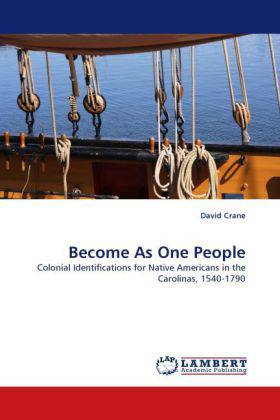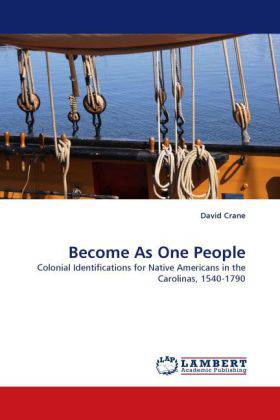
- Afhalen na 1 uur in een winkel met voorraad
- Gratis thuislevering in België vanaf € 30
- Ruim aanbod met 7 miljoen producten
- Afhalen na 1 uur in een winkel met voorraad
- Gratis thuislevering in België vanaf € 30
- Ruim aanbod met 7 miljoen producten
Zoeken
Become as One People
Colonial Identifications for Native Americans in the Carolinas, 1540-1790
David Crane
Paperback | Engels
€ 48,45
+ 96 punten
Omschrijving
The ways in which identities were created throughout the Atlantic World have been the subject of many recent works. Scholars have studied identity formation in Europe, Africa, and the Americas from the beginning of European colonization in the fifteenth century through the independence movements of the late eighteenth and early nineteenth centuries. Native American identities followed similar patterns of construction in the Carolinas compared with others in the Atlantic World. Become As One People investigates the ways in which Spanish and English colonists identified Native Americans in the Carolinas from their earliest voyages in the sixteenth century to the first United States census in 1790. It argues that colonists' identifications for Native Americans reflected the usefulness of Native American polities to the Spanish and English in achieving their goals of colonization, their preconceptions about Native Americans they intended to colonize, and the nature of their relationship with Native American polities in the Carolinas. The book should be of use to those interested in identity, the Atlantic World, and Native American History.
Specificaties
Betrokkenen
- Auteur(s):
- Uitgeverij:
Inhoud
- Aantal bladzijden:
- 116
- Taal:
- Engels
Eigenschappen
- Productcode (EAN):
- 9783843381796
- Verschijningsdatum:
- 13/12/2010
- Uitvoering:
- Paperback
- Formaat:
- Trade paperback (VS)
- Afmetingen:
- 152 mm x 229 mm
- Gewicht:
- 181 g

Alleen bij Standaard Boekhandel
+ 96 punten op je klantenkaart van Standaard Boekhandel
Beoordelingen
We publiceren alleen reviews die voldoen aan de voorwaarden voor reviews. Bekijk onze voorwaarden voor reviews.











